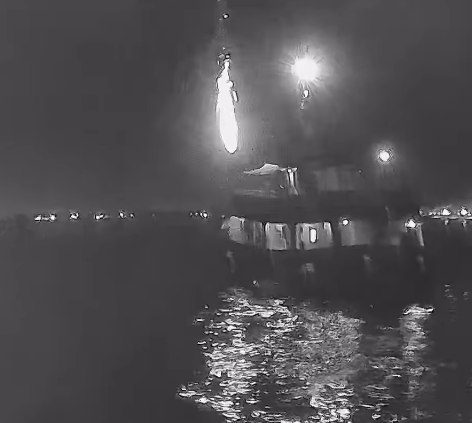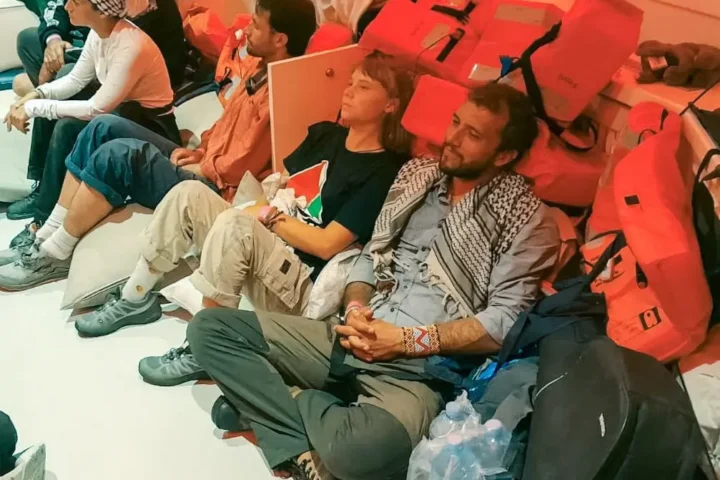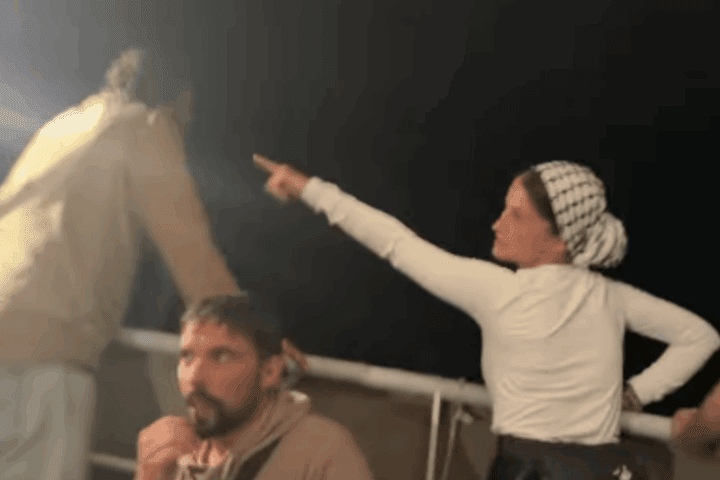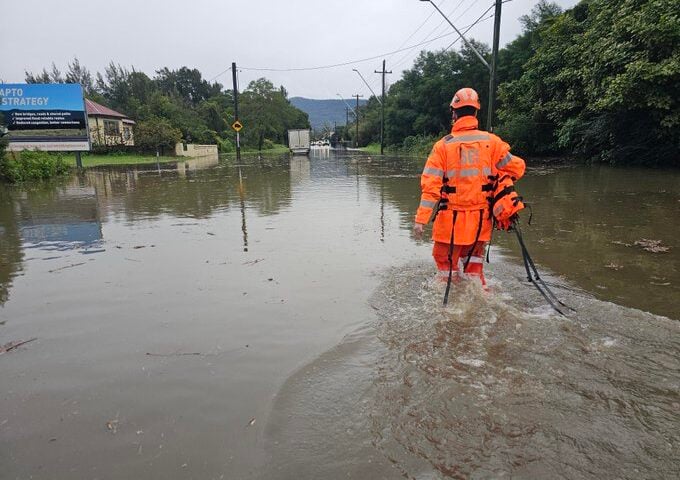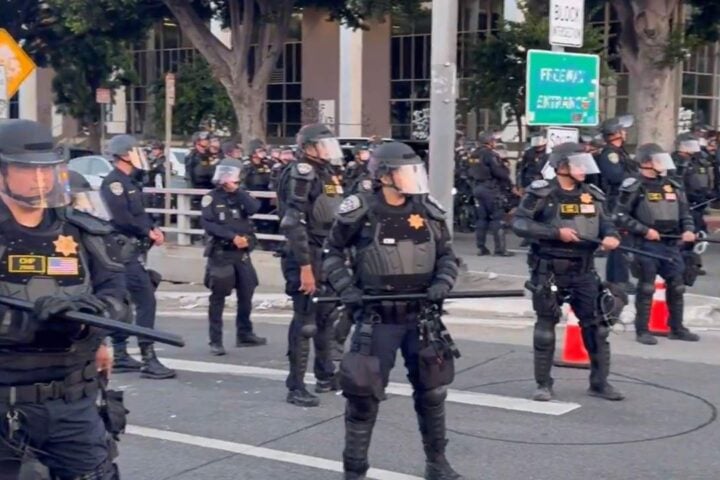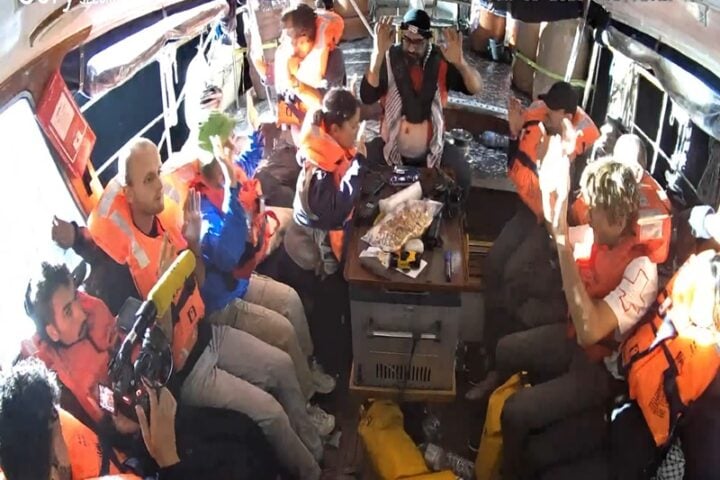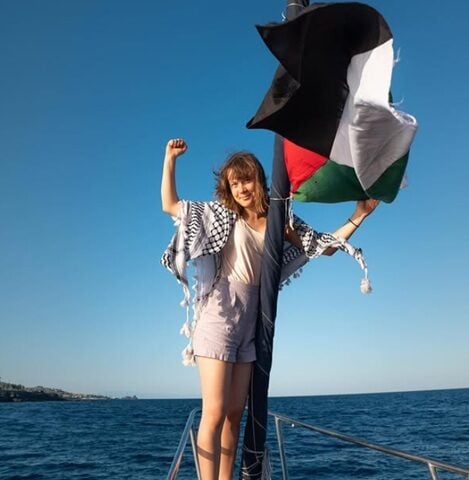A Gaza-bound aid boat caught fire in Tunisian waters on September 8, 2025, while anchored off the coast of Sidi Bou Said. Six crew members escaped unharmed as conflicting accounts emerge about what caused the blaze on the Portuguese-flagged vessel.
The Global Sumud Flotilla‘s “Family Boat” sustained damage to its main deck and storage areas, according to the organization’s press statement. The Global Sumud Flotilla(GSF) confirmed all passengers and crew are safe, but they describe a concerning situation at sea.
“Our boat was struck by what is suspected to be a drone in Tunisian waters,” reads the GSF press statement released on their Instagram (@globalsumudflotilla) and Twitter accounts. Video footage shared by activists shows what appears to be a luminous object and a flash. Independent verification of the footage or definitive attribution has not been established.
Tunisian authorities tell a different story. The National Guard found “no drones detected in Tunisian airspace” during the incident. Their preliminary inspection suggests an accidental fire started inside the vessel. “Evidence indicates a cigarette lighter may have ignited a lifejacket,” their statement explains. The conflicting narratives highlight the challenges in verifying what actually happened.
Finding answers requires gathering specific maritime forensic evidence. Under UN Convention on the Law of the Sea Article 94, Portugal bears administrative responsibilities as the vessel’s flag state for ships flying its flag. Meanwhile, Tunisia’s jurisdiction as the coastal state gives their authorities control over their territorial waters and immediate access to physical evidence.
Maritime investigators will need multiple data sources to determine the fire’s origin. Port CCTV footage, AIS transponder data showing vessel movements, coastal radar logs that might have tracked aerial objects, and physical debris analysis all provide crucial puzzle pieces. Fire pattern analysis can reveal whether flames spread from an external impact point or an internal ignition source—key to distinguishing between the competing claims.
Francesca Albanese, UN Special Rapporteur on Palestinian human rights, was in Sidi Bou Said during the incident. She shared footage on social media with the comment “Draw your conclusions.” She told Reuters, “We do not know who carried out the attack… If confirmed, it is an attack against Tunisian sovereignty.”
The Family Boat forms part of a larger humanitarian mission. The Global Sumud Flotilla left Barcelona carrying aid for Gaza, where UN-backed assessments say parts of Gaza are in famine, with roughly 500,000 people facing “catastrophic” conditions. Their mission continues a long tradition of maritime activism aimed at challenging the Gaza blockade.
Similar flotilla attempts have faced obstacles before. The 2010 Mavi Marmara incident ended with nine activists killed during an Israeli raid (a tenth activist later died from wounds). Previous flotillas have reported various forms of interference while attempting to reach Gaza.
Israeli officials had not commented on this specific incident at the time of reporting, according to multiple news sources.
Tunisian authorities say investigations are ongoing. Footage has circulated publicly, though investigation timelines have not yet been announced.
GSF activists remain undeterred. “Acts of aggression aimed at intimidating and derailing our mission will not deter us,” their statement declares. “Our peaceful mission to break the siege on Gaza continues with determination.”
The flotilla can be followed on Instagram (@globalsumudflotilla) and Twitter/X accounts, where they post regular mission updates. The incident is part of growing tensions surrounding humanitarian efforts to reach Gaza by sea.
